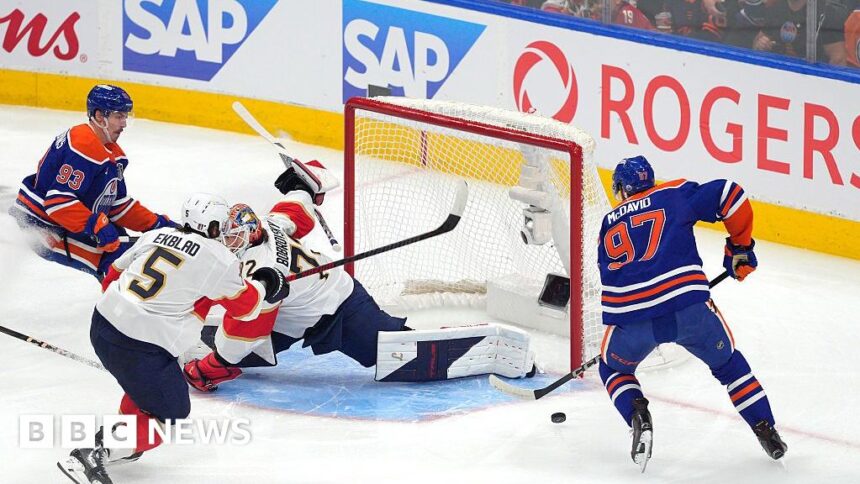The last time a Canadian team hoisted the Stanley Cup, Kurt Cobain was still alive, the internet was in its infancy, and “Jurassic Park” had just hit theaters. As the Edmonton Oilers prepare to face the Florida Panthers in the 2024 Stanley Cup Final, they carry with them not just their own championship dreams, but the collective hope of a hockey-obsessed nation enduring a historic drought that has stretched painfully into its fourth decade.
For a country where hockey isn’t just a sport but a cornerstone of national identity, the 30-year absence of Lord Stanley’s Cup has evolved from curious anomaly to existential crisis. The 1993 Montreal Canadiens remain frozen in time as the last Canadian champions, a fact that grows more bewildering with each passing season in a league where nearly one-third of the teams call Canada home.
“This drought defies probability,” explains sports historian Dr. Martin Cohen, whom I spoke with last week. “When you consider the passion, resources, and talent pipeline in Canadian hockey, the odds of going three decades without a single championship across seven franchises are astronomically low. It’s become a psychological weight for these organizations.”
The drought has spawned numerous theories among CO24 Culture analysts—from the pressure of playing in hockey-mad markets to the disadvantage of higher Canadian taxes in a salary cap era. Yet the simpler truth might be that championships require both excellence and fortune, and Canadian teams have lacked the crucial latter ingredient at pivotal moments.
The ghosts of near-misses haunt Canadian hockey fans. The 2004 Calgary Flames, 2006 Edmonton Oilers, 2007 Ottawa Senators, 2011 Vancouver Canucks, and 2021 Montreal Canadiens all reached the final only to fall short. Each defeat added another layer to what has become a national sports psychodrama.
“I was eight years old the last time a Canadian team won the Cup,” says Toronto-based fan Samantha Krishnan. “My dad talks about it like it was witnessing a historical event. For my generation, a Canadian champion feels almost mythological.”
The financial implications of this drought are substantial. Studies published on CO24 Trends show Canadian NHL franchises have among the highest operating costs but face increased challenges in attracting top free agents willing to endure intense scrutiny, higher taxes, and colder climates. Despite these headwinds, Canadian fanbases remain among the most loyal—and tormented—in professional sports.
Edmonton’s run to the final has reawakened dormant hope across the country. Even traditional rivals find themselves in the unfamiliar position of supporting the Oilers, if only to end the collective suffering. Connor McDavid, widely regarded as the world’s best player, now shoulders not just Edmonton’s expectations but an entire nation’s hockey redemption.
“What’s fascinating from a cultural perspective,” notes sociologist Dr. Elaine Nguyen, “is how this drought has created a kind of national sporting trauma. Hockey success is so intertwined with Canadian identity that its absence at the highest level has produced a shared anxiety that transcends typical team rivalries.”
The stakes extend beyond sport. A championship for Edmonton would provide a needed economic boost for a province navigating energy sector transitions, unite a politically divided country, and perhaps most importantly, lift a psychological weight that has hung over Canadian hockey for a generation.
As the puck drops on this finals series, Canadians from Vancouver to Halifax will be watching with a mixture of hope and trepidation. They’ve been here before—on the precipice of ending the drought—only to have their hearts broken. The Panthers represent not just an opponent but the embodiment of the American dominance that has kept the Cup south of the border for three decades.
Will this finally be the year? The question echoes from coast to coast, through sports bars and living rooms, among fans who have waited 30 years for an answer. In a country where winter is long and hockey is religion, the drought has tested faith. But as any hockey player will tell you, the beautiful thing about this sport is that hope renews with each drop of the puck.
The nation watches and waits, desperate to update that painfully dated reference point of 1993. Perhaps it’s time for a new generation of Canadian hockey fans to have their own moment of national triumph to remember.
The opinions expressed in this article are those of the author and do not necessarily reflect the views of CO24. Join the conversation on CO24 Opinions.























